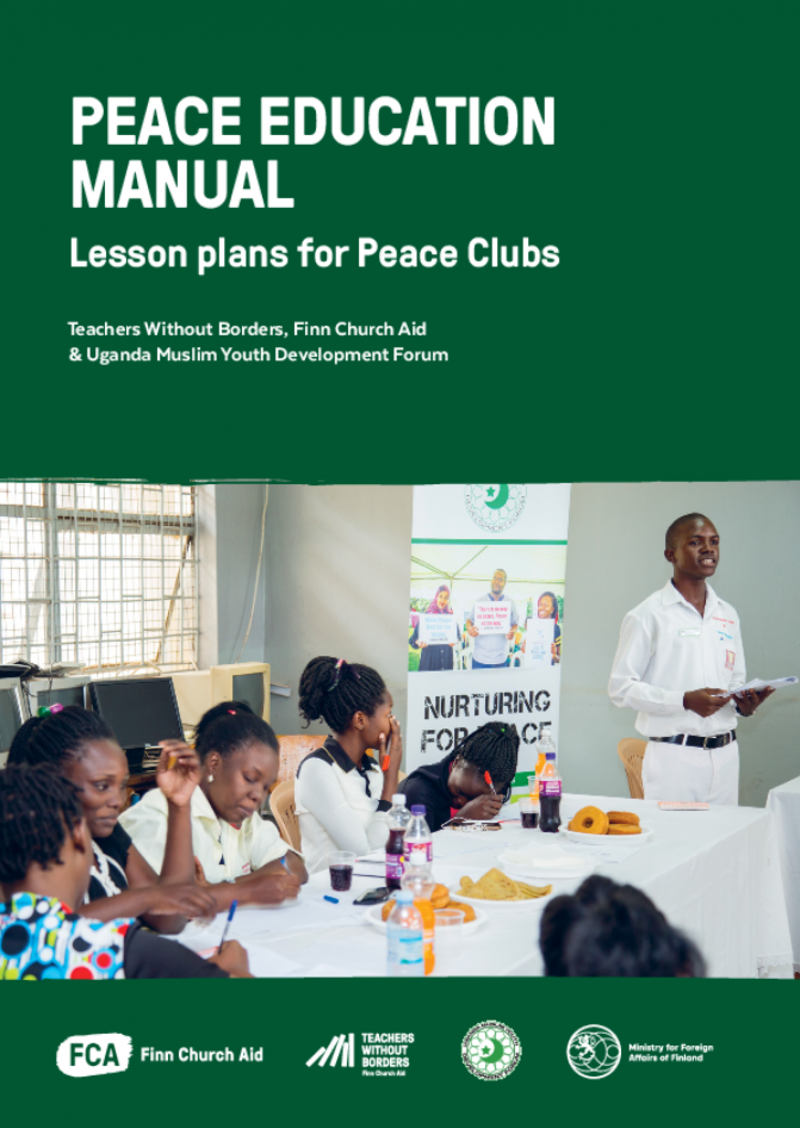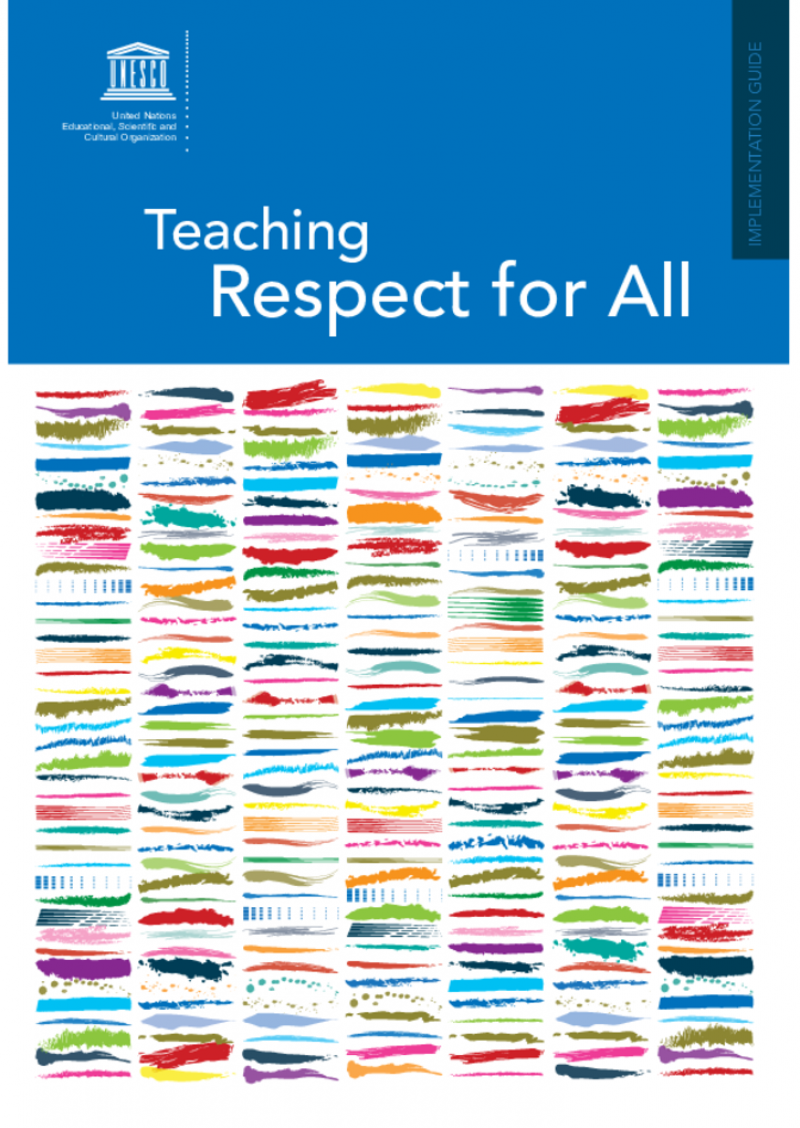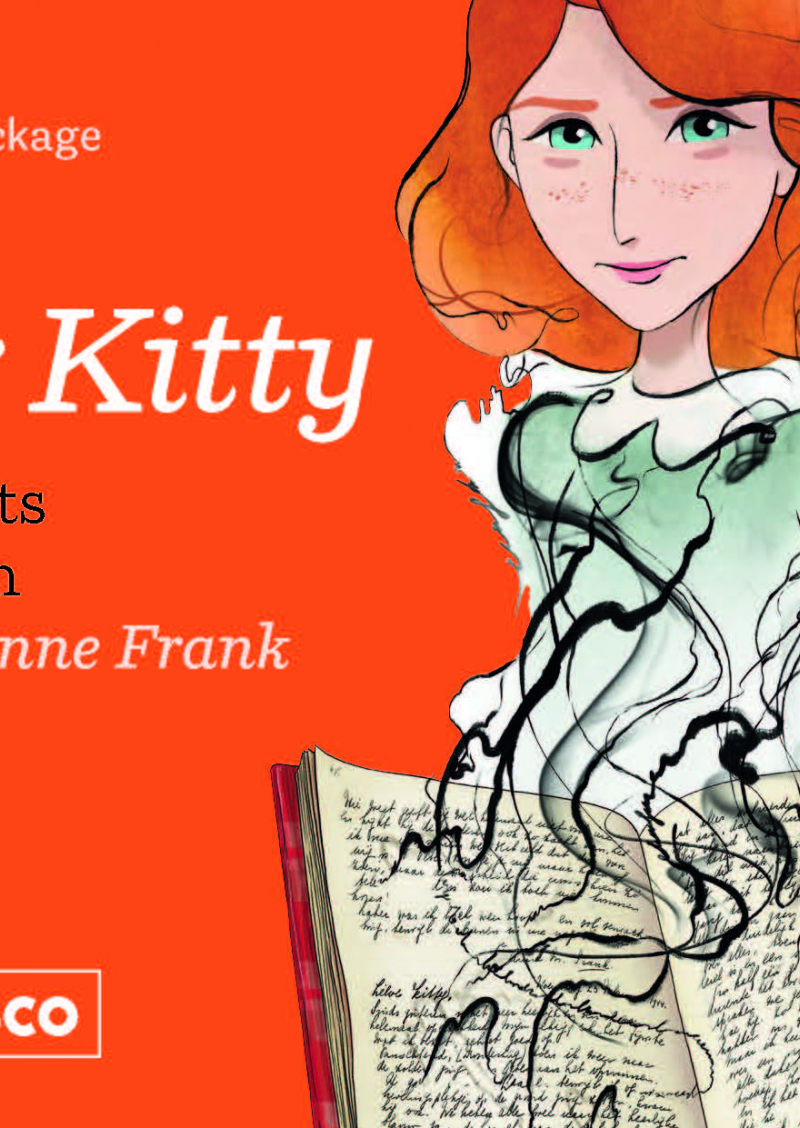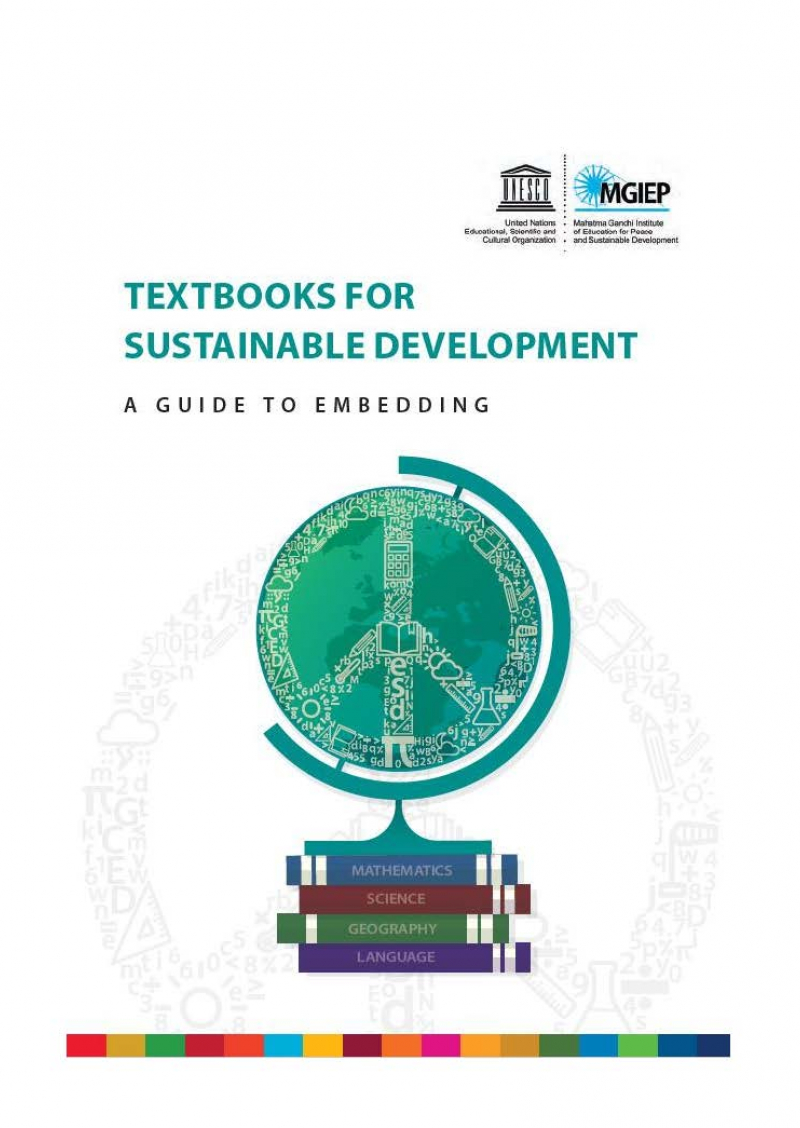Centro de Recursos para Docentes
Visualizar 1 - 19 de 19
Global citizenship education in a digital age: teacher guidelines
This publication has been designed both for new and experienced teachers, as well as other professionals working in non-formal education settings that engage with upper primary and secondary students.
Purpose:
1.By using principles of GCED, digital citizenship, and media and information literacy, the guidelines aim to build the capacities of teachers to prepare learners to understand the implications of global and digital transformations on education, and to build opportunities to practice ethical and responsible behaviours in physical and digital environments. They provide guidance on tapping into the positive potential of the digital transformation, including through new access to information, possibilities of connection, and the creation of tailored content.
2. Build learners’ capacities to think critically about the influences and content that they encounter and engage in creating in physical and digital spaces.
3. Shape learners’ understanding of global challenges and how they can contribute to the Sustainable Development Goals (SDGs) through globally oriented digital citizenship.
Media and information literate citizens: think critically, click wisely!
This pioneering curriculum presents a comprehensive competency framework of media and information literacy (MIL) and offers educators and learners structured pedagogical suggestions. It features various detailed modules covering the range of competencies needed to navigate today's communications ecosystem. This resource links media and information literacy to emerging issues, such as artificial intelligence, digital citizenship, education, education for sustainable development, cultural literacy, and the exponential rise in misinformation and disinformation. With effective use of this media and information literacy curriculum, everyone can become media and information literate as well as peer-educators of media and information literacy.
This UNESCO model MIL Curriculum and Competency Framework for Educators and Learners is intended to provide education systems in developed and developing countries with a framework to construct a programme enabling educators and learners to be media and information literate. UNESCO also envisions that educators will review the framework and take up the challenge of participating in the collective process of shaping and enriching the curriculum as a living document. The first edition and this second edition of the MIL curriculum have benefited from several series of collaborative and intercultural expert debates and recommendations. The curriculum focuses on required core competencies and skills which can be seamlessly integrated into the existing education system without putting too much of a strain on overloaded education curricula.
The target groups for the curriculum are essentially educators and learners. Educators and learners are understood in the broadest sense of the terms to include teachers at the secondary and primarily tertiary levels, persons involved in training or learning on all forms in NGOs, CSO, community centers, the media, libraries, online or offline. Given that the curriculum was developed with adaptation in mind, it can be used by various stakeholders interested in the field of MIL. Users may need to adapt the content to make it more relevant or accessible to specific target groups. The curriculum is also relevant to government officials and ministries, and other social and international development organizations.
Peace Education Manual. Lesson plans for Peace Clubs
This Peace Education Manual has been developed in collaboration with Finn Church Aid (FCA) Uganda, local partner Uganda Muslim Youth Development Forum (UMYDF) and Teachers Without Borders (TWB) Network Finland.
The manual was developed to strengthen the pedagogical and methodological quality of local peace clubs during the spring and summer of 2022. The contents of the manual were successfully piloted with more than 480 young people in eight lower secondary school peace clubs established and run by UMYDF with the support of FCA in Uganda. Two of the peace clubs are located in the Bidibidi Refugee Settlement, one of the largest refugee settlements in the world.
The material consists of 34 lessons plans and is primarily aimed for young people. The different sections and activities of the material can be used flexibly in training, clubs, or, for example, as individual lessons on peace building, socio-emotional skills, conflict resolution or cooperation skills. The exercises are functional, learner-centered and emphasize active participation of youth. The material is adaptable for use anywhere in the world.
FCA and UMYDF have been working together since 2016 in Uganda to promote the positive role of youth in conflict prevention and peacebuilding. In our work, peace education is defined as a holistic, multidisciplinary and transformative process that seeks to develop capacities that promote non-violent conflict resolution, respect for human rights and active participation.
ETF READY model
The European Training Foundation's READY model (Reference model for Educators' Activities and Development in the 21st century) offers a structured way to identify the professional practices and development needs of the 21st century educators.
How to design an electronic lesson in 24 hours
Learning design for smart learning.
Defines the general landscape of instructional design in smart education.
Understand the five steps of lesson planning in Smart Learning.
Explains the requirements for designing a session in smart learning.
Design a smart learning session using Google Classroom.
How to become a remote teacher in 24 hours
Recognize e-learning technology.
Identify the main components of e-learning.
Identify tools for managing the educational process in e-learning.
Uses the tools of the educational process: Moodle Cloud.
Online Learning Design for Educators Specialization
Specialization offering three courses for educators seeking to improve and expand their repertoire of online teaching skills related to the design, development and delivery of effective and engaging online courses and lessons for school age and adult learners. It includes three courses: "Online education: The foundations of online teaching", "Create video, audio and infographics for online learning", "Online teaching: Using Zoom to connect with learners". It is possible to audit the courses for free.
Addressing anti-semitism in schools: training curriculum for secondary education teachers
This publication is part of a four-volume set of training curricula to address anti-Semitism in schools. This volume focuses on the training curriculum for secondary education teachers. Each volume in this set aims to assist trainers in the field of education globally to work effectively towards strengthening the capacity of teachers to prevent and respond to antiSemitism, this specific and highly dangerous type of prejudice directed at Jewish people. In this sense, the curriculum addresses anti-Semitic prejudice and perceptions of Jews, phenomena which often also fulfil a social and political function in societies around the world; it is not material aimed at preparing teachers for intercultural dialogue.
Addressing anti-semitism in schools: training curriculum for vocational education teachers
This publication is part of a four-volume set of training curricula to address anti-Semitism in schools. This volume focuses on the training curriculum for vocational education teachers. Each volume in this set aims to assist trainers in the field of education globally to work effectively towards strengthening the capacity of teachers to prevent and respond to antiSemitism, this specific and highly dangerous type of prejudice directed at Jewish people. In this sense, the curriculum addresses anti-Semitic prejudice and perceptions of Jews, phenomena which often also fulfil a social and political function in societies around the world; it is not material aimed at preparing teachers for intercultural dialogue.
Addressing anti-semitism in schools: training curriculum for school directors
This publication is part of a four-volume set of training curricula to address anti-Semitism in schools. This volume focuses on the training curriculum for school directors. Each volume in this set aims to assist trainers in the field of education globally to work effectively towards strengthening the capacity of teachers to prevent and respond to antiSemitism, this specific and highly dangerous type of prejudice directed at Jewish people. In this sense, the curriculum addresses anti-Semitic prejudice and perceptions of Jews, phenomena which often also fulfil a social and political function in societies around the world; it is not material aimed at preparing teachers for intercultural dialogue.
Addressing anti-semitism in schools: training curriculum for primary education teachers
This publication is part of a four-volume set of training curricula to address anti-Semitism in schools. This volume focuses on the training curriculum for primary education teachers. Each volume in this set aims to assist trainers in the field of education globally to work effectively towards strengthening the capacity of teachers to prevent and respond to antiSemitism, this specific and highly dangerous type of prejudice directed at Jewish people. In this sense, the curriculum addresses anti-Semitic prejudice and perceptions of Jews, phenomena which often also fulfil a social and political function in societies around the world; it is not material aimed at preparing teachers for intercultural dialogue.
Teaching respect for all: implementation guide
This Teaching Respect for All Implementation Guide comprises a set of policy guidelines, questions for self-reflection, ideas and examples of learning activities to integrate Teaching Respect for All into all aspects of upper primary and lower secondary education, in an effort to counteract discrimination in and through education. It mainly targets policy makers, administrators/headteachers and formal and informal educators.
Part 2 targets headteachers and education NGO managers, suggesting key areas of intervention with a list of possible actions/activities and Part 3 targets teachers and describes methods of dealing with difficult topics such as racism and discrimination with learners as well as provides suggestions for possible entry points and topics to link the issues of respect for all with particular teaching subjects.
Empoderar a los alumnos para crear sociedades justas: manual para docentes de educación secundaria
El presente manual tiene por objeto proporcionar a los docentes diversos recursos educativos relevantes y accesibles que pueden usarse tanto dentro como fuera del aula (resúmenes de actividades breves, planes de clase) dirigidos a transmitir los principios del estado de derecho a los alumnos de educación secundaria.
También pueden utilizarlo profesionales que trabajan en contextos educativos no formales o que están implicados con los jóvenes, por ejemplo, en asociaciones deportivas, en organizaciones comunitarias, que hacen trabajo social y en el sector de justicia.
El manual para educación primaria se encuentra aquí.
Empoderar a los alumnos para crear sociedades justas: manual para docentes de educación primaria
El presente manual tiene como objetivo proporcionar a los docentes diversos recursos educativos relevantes y accesibles que pueden usarse tanto dentro como fuera del aula (resúmenes de actividades breves, planes de clase) dirigidos a transmitir los principios del estado de derecho a los alumnos de educación primaria.
También pueden utilizarlo profesionales que trabajan en contextos educativos no formales o que están implicados con los jóvenes, por ejemplo, en asociaciones deportivas, en organizaciones comunitarias, que hacen trabajo social y en el sector de justicia.
El manual para educación secundaria se encuentra aquí.
Dear Kitty: worksheets for the film Where is Anne Frank?
These worksheets are to be used with the teacher's guide "Dear Kitty: teacher's guide for the film Where is Anne Frank?".
Dear Kitty: teacher's guide for the film Where is Anne Frank?
This guide provides teachers with the necessary tools to highlight historical and current themes from the animated film "Where is Anne Frank".
It includes a preparatory lesson, a lesson to discuss the film and four detailed thematic follow-up lessons. The film and the lessons are accompanied by extensive background information and ready-to-use worksheets with information, questions and assignments.
Recommendations for teaching and learning about the Holocaust
Benefiting from the expertise of delegates from more than 30 member countries, the IHRA Recommendations for Teaching and Learning about the Holocaust are intended to provide a basis for policymakers, practitioners, and educators that will help them:
1. Develop knowledge of the Holocaust, ensuring accuracy in individual understanding and knowledge and raising awareness about the possible consequences of antisemitism;
2. Create engaging teaching environments for learning about the Holocaust;
3. Promote critical and reflective thinking about the Holocaust including the ability to counter Holocaust denial and distortion;
4. Contribute to Human Rights and genocide prevention education
Guidelines for teachers and educators on tackling disinformation and promoting digital literacy through education and training
These guidelines offer concrete, hands-on guidance for teachers and educators, primarily in primary and secondary education, to promote digital literacy and tackle disinformation.
They offer clear explanations of technical concepts, class-exercises for fact-checking, ways to encourgage "good" online habits and ways to assess students regarding their copetencie snt he field of digital literacy.
Textbooks for sustainable development: a guide to embedding
This guidebook aims to support textbook authors and publishing houses to produce a new generation of textbooks that integrate education for sustainable development. By doing so, it aspires to make learning relevant and effective. It also contributes to the implementation of the 2030 Agenda for Sustainable Development. Textbook authors and educators are encouraged to use this guidebook as a source of ideas, tools and methods that can help to enrich content and pedagogy and complement their own individual and institutional strategies. The guidebook offers concrete guidance for textbook authors on how to reorient the existing curriculum content towards peace, sustainable development and global citizenship.















